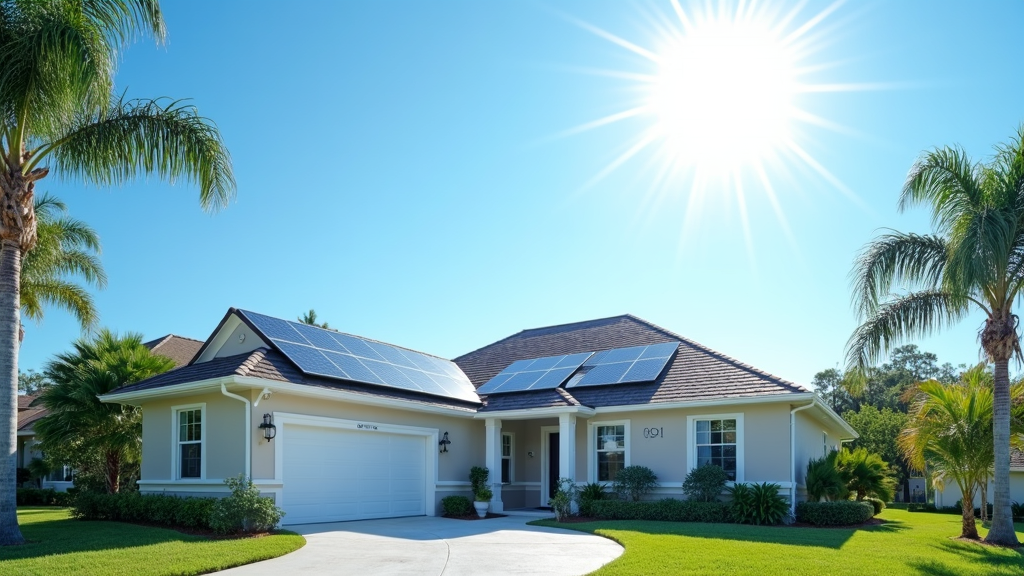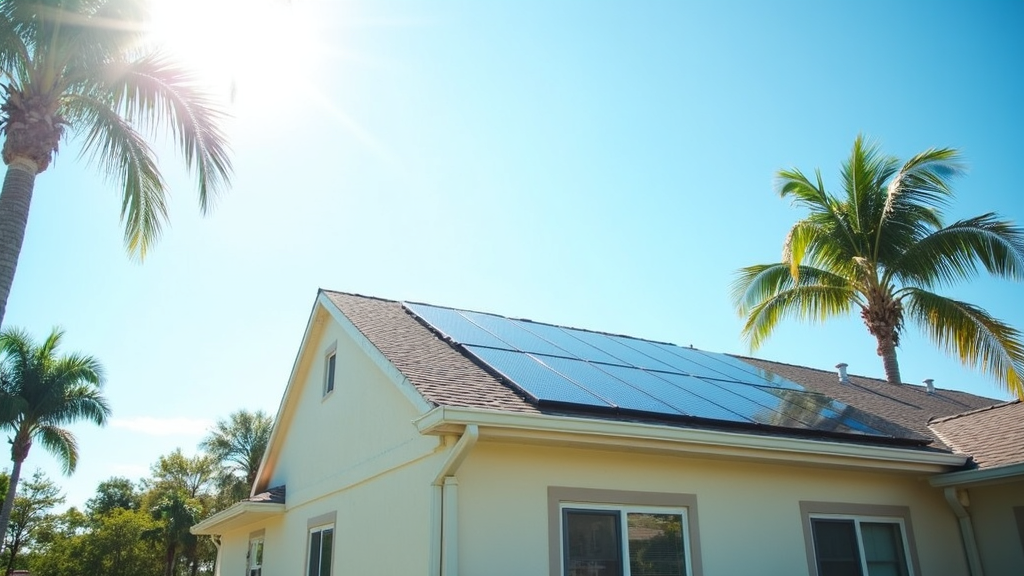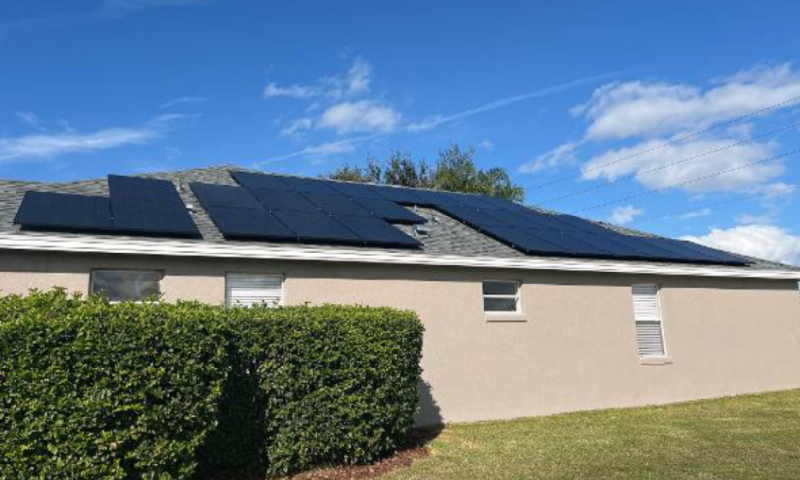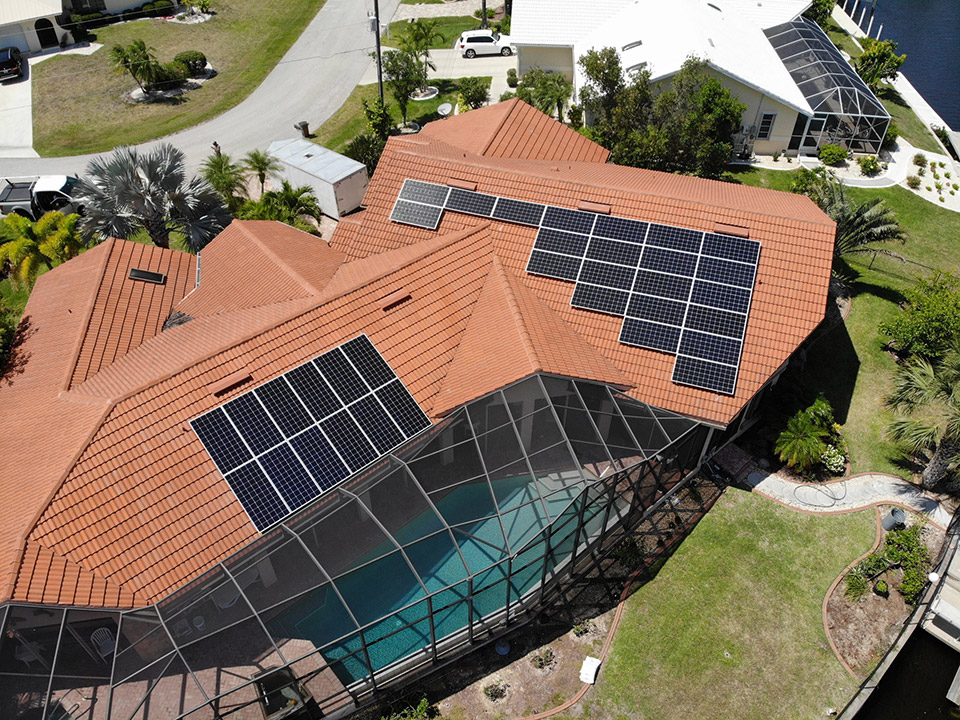Adding solar panels to your Florida home is a smart move, both for saving money and for helping the environment. With all the sunshine in Florida, tapping into solar energy just makes sense. There’s a lot to think about though; from upfront costs to weather durability and rebate programs. Here’s my practical guide on what to know if you’re considering solar panels for your Florida home.

Why Solar Panels Make Sense in Florida
Florida has earned its nickname “The Sunshine State” for a good reason. With over 230 sunny days a year on average, solar panels usually have plenty of time to capture energy from the sun. All this sunlight can translate into energy savings if you have the right solar system set up at home.
Energy rates across Florida do tend to fluctuate, but installing solar panels lets you produce your own electricity, which often cuts down on utility bills over time. Recent data from the Solar Energy Industries Association shows that Florida consistently ranks among the top three states for solar installations, a testament to both its popularity and practicality.
If you’re searching for ways to reduce your carbon footprint, solar power is a pretty effective option—especially compared to traditional sources that rely on fossil fuels. And with electricity prices slowly increasing year after year, going solar can help insulate you from those unexpected bill spikes.
What to Know Before Installing Solar Panels in Florida
Getting solar panels installed isn’t just a matter of picking a system and attaching it to your roof. The process includes several steps that are worth paying attention to:
- Roof Condition: Your roof needs to be in solid shape to handle solar panels. If you plan on replacing your roof soon, it’s best to do that first, before any installation.
- Roof Orientation and Shade: Solar panels work best on south-facing roofs in Florida. Overhanging trees or tall buildings that cast shade for much of the day can impact performance.
- Local Regulations: Homeowner association rules, city codes, and permitting requirements can all affect what’s possible for your installation, so check these early.
- Rebates and Incentives: Florida offers some state and utility tax incentives for solar, but it pays to check what applies in your area and if you need to fill out special paperwork.
Careful planning early on makes the entire project go more smoothly and lets you get the most value out of your solar investment. Talking to local installers and reading current guidelines can also help ensure you step around any common problems.
The Basics: Breaking Down How a Home Solar Panel System Works
Most solar panel systems for homes include a few main components that put together sunlight and turn it into usable electricity:
- Solar Panels: These collect sunlight and turn it into direct current (DC) electricity.
- Inverter: This device transforms DC electricity into alternating current (AC) electricity, which is what your home actually uses for appliances and electronics.
- Mounting Hardware: These are the racks and brackets that attach the panels right to your roof so they stay secure even in stormy weather.
- Monitoring System: Many systems now include a way to track your energy production and performance, either through a display screen or on an app on your phone.
- (Optional) Batteries: Adding a battery lets you store excess power for use at night or during outages. This is becoming more common in Florida’s storm-heavy climate and is worth looking into for extra peace of mind.
All these parts work together to help you use less from the power grid and keep your energy bills in check every month.
Steps for Getting Started with Solar at Home
Getting a solar panel system set up is a process. Here’s a step-by-step walk-through based on what I’ve seen work best:
- Check Your Roof’s Suitability: Not every roof is ready for solar. Have a professional check if your home is a good fit for panels based on direction, pitch, and condition.
- Get a Site Assessment: A site visit from a reputable installer will help figure out what size system fits both your energy needs and your available space. They can also spot any shade problems that might cut into performance.
- Compare Quotes: Don’t jump at the first company you talk to. Get quotes from at least two or three local businesses, and look for reviews or references from other homeowners nearby.
- Explore Incentives: Rebates and credits can change, so confirm what’s actually available for you, and see what paperwork you need. Most installers help with this and can guide you through each form or application.
- Sign a Contract: Look over details like the timeline, warranty, and what happens if repairs are needed. Be sure everything is spelled out in writing before moving forward.
- Installation: Actual install time ranges from a day to just a few days, depending on your system’s size and how complicated your roof is.
- Inspection and Activation: Permits need sign-off from your city or county, then your utility might check the system before you officially “flip the switch.”
Taking these steps in order helps you stay on track, avoid delays, and stay in good standing with your local building codes.
What Makes Florida Unique for Solar Homeowners
Florida’s climate is perfect for solar, but there are a few local details that can make a difference when planning your setup:
- Hurricane Season: Solar equipment set up by pros in Florida is rated for hurricane-level winds. Still, it’s smart to double-check your installer follows state wind codes and uses wind-resistant mounts.
- Rain and Humidity: High humidity and salty air (especially near the ocean) can impact hardware over time, so corrosion-resistant mounts and panels are important if you’re close to the coast.
- Net Metering: Many Florida utilities offer net metering, so you get credited for extra energy your panels send back into the grid. These rules can change and different utilities might have unique requirements or rates, so always confirm before you start.
Being aware of these local quirks helps you avoid future hassles and ensures your system stays valuable for the long run.
What to Watch Out For When Choosing Solar Panels in Florida
Solar panels are a lasting investment—often 25 years or more—so making the right choice the first time is important. Here are the main things I watch for:
- Product Warranty: Most panels come with a manufacturer warranty from 10 to 25 years. Check that the warranty also covers your inverter and installation work, which sometimes fail before the panels themselves do.
- Panel Efficiency: Higher efficiency means you squeeze more power out of the same space, which is handy if your roof isn’t huge.
- Reputation of the Installer: A proven record of happy Florida customers is a big plus. Good installers often include in-house repair services if anything goes wrong later.
- Battery Options: If you want hands-off backup power for blackouts or storms, plan for a battery even if you aren’t buying it on day one. Adding batteries later is usually easier if your system is battery-ready from the start.
Many homeowners I’ve talked to find it’s smarter to pay extra for quality equipment and strong warranties—especially after living through tough hurricane seasons. To check brand and installer reliability, look up ratings from unbiased review sites like the Better Business Bureau or SolarReviews.com.
Best Ways to Save with Solar in Florida
Solar can seem expensive upfront, but there are several ways to bring the price down or boost your long-term savings:
- Federal Solar Tax Credit: This program covers a percentage of your total installation cost as a credit against your federal taxes. For 2024, it’s 30% for most homeowners, which makes a big difference.
- Sales Tax Exemption: Florida solar energy systems get a sales tax exemption, so you won’t pay sales tax on your system hardware.
- Property Tax Exclusion: If your system bumps up your home’s value, that increase won’t get taxed on your property taxes.
- Utility Rebates: Some local utilities offer extra cash-back programs or rebates. These change frequently, so check in with your solar company to see what deals are current.
Stacking these incentives together can take a huge bite out of your price tag, making your investment much more manageable. Over time, the lowered bills really add up.
Common Questions About Solar Panels for Florida Homes
Plenty of questions pop up when considering solar for the first time. Here are some I hear most often:
Does home solar work if there are cloudy days?
The answer is yes; your panels still pick up sunlight during overcast weather, though they make less energy. Florida’s long, sunny stretches usually more than make up for the occasional rainstorm.
How long do solar panels last?
Most solar panels carry a 25-year performance warranty. Many will keep producing energy beyond that, just at a slightly reduced rate.
What happens during a hurricane or power outage?
With a standard grid-tied system and no battery, your system shuts off for safety during a power outage. If you want backup power during storms, adding battery storage is the way to handle it.
Does installing solar make it harder to sell my house?
Many Florida buyers actually look for homes with solar panels. Studies show that these homes often sell faster and might command a higher price, especially if there isn’t an unfinished loan attached to the panels.
Real-World Uses and Benefits of Solar at Home
Solar power can fit into almost any Florida home—city or suburb, large family or small household. I’ve seen families significantly lower their energy bills while running the air conditioning they need during hot summers, retirees enjoying backup power during outages, and small home offices powered completely by the sunshine. Solar also helps keep pool pumps and water heaters going with almost no extra bump in the utility bill. There’s a unique satisfaction in watching your meter run backward on a bright afternoon.
With solid planning, solar panels bring real value to Florida homeowners. From slashing monthly bills to providing backup power in storms, the combination of constant sunshine and strong local incentives makes solar a practical and rewarding investment.



